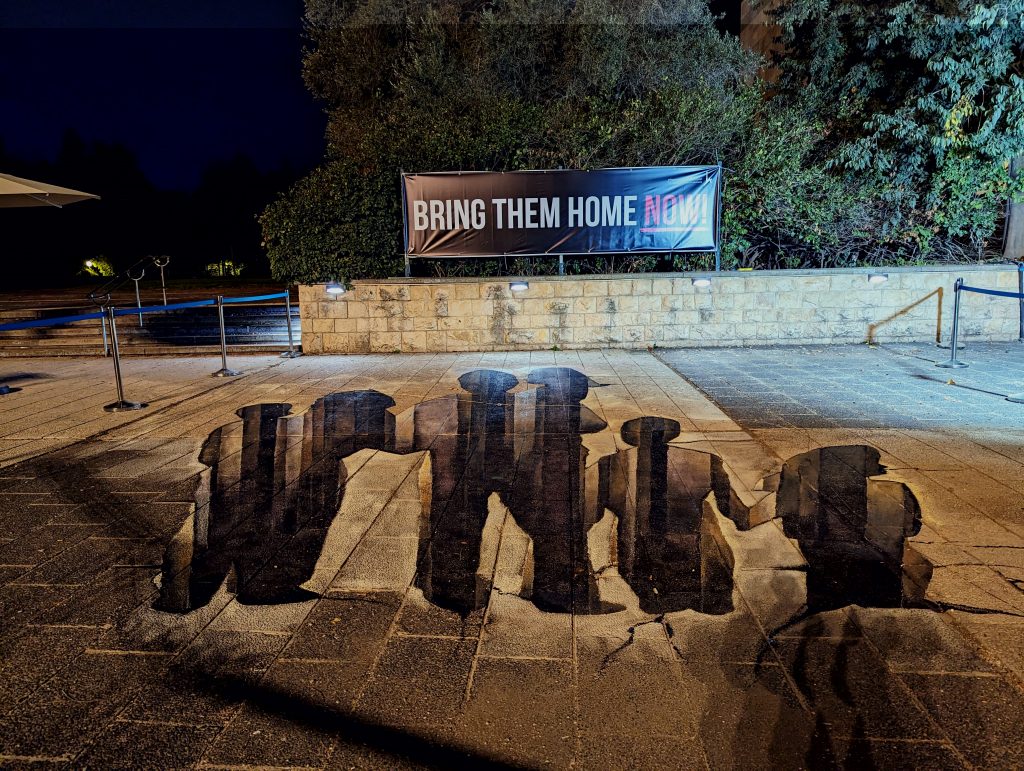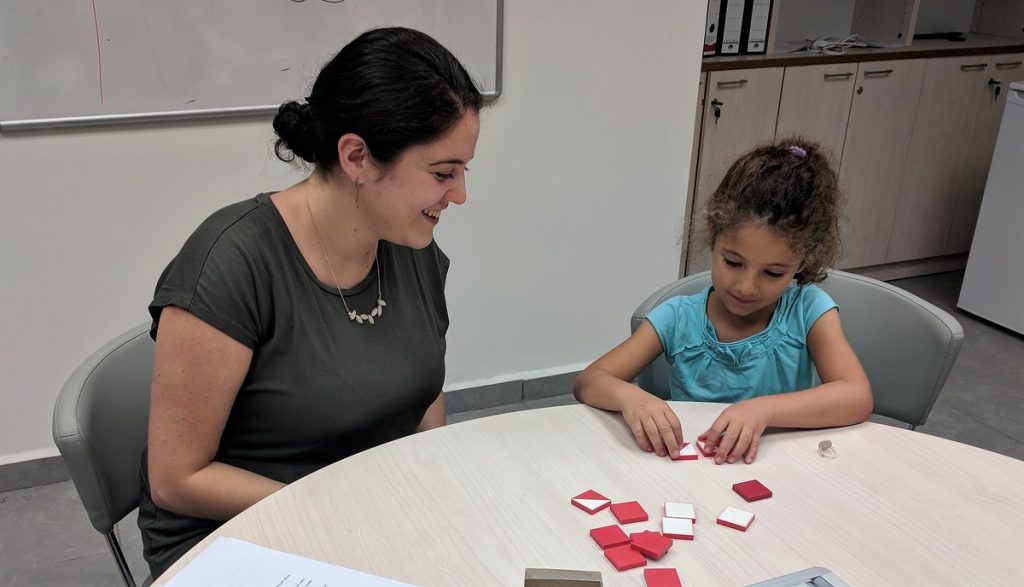The Hebrew University Institute For Traumatic Stress and Recovery (ITSR)
“The trauma of what happened on Oct. 7 shifted Israeli society. It made them question the most basic tenets of whether they were safe in their homes,” said Tal Schneider, a political columnist for The Times of Israel.
New York Times, Dec 19, 2023
The horrific October 7th attack on Israel and the ensuing war have focused national attention on trauma. Statistics vary, but it is assumed that most Israelis have been affected by trauma by the events of October 7th or its aftermath – whether the trauma is direct, indirect, or compounded; whether individual or collective. Of the almost 3,000 soldiers who have begun rehabilitation treatment since the war broke out, 18% have been diagnosed with mental health difficulties and PTSD (Haaretz, Dec 19).
However, Israel’s ability to promote resilience (the capacity to robustly prepare for, respond to, and recover from traumatic events) and prevent and treat trauma-related mental health difficulties is limited. Even before October 7th, events in recent years, such as the case of IDF veteran Itzik Saidyan who set himself on fire in protest over not getting care he’d requested for PTSD, have shown that whether in civilian life or the military, Israel does not have sufficient resources to deal effectively with traumatic stress and post-traumatic disorders. Given the tremendous need for such resources in the wake of the current crisis, this is a serious problem for Israeli society.

Israel and Trauma
Traumatic events (i.e., natural and man-made disasters, such as earthquakes, war, terror, and rape) can jeopardize survivors’ physical and mental health and cause dire economic consequences, depleting community and national resources. Ten to 60 percent of those who experience trauma are likely to develop mental health problems, such as post-traumatic stress disorder, depression, anxiety, complex grief, and difficulties in marital, social, and occupational adjustment. And 25-50% need mental health services to recover. As a result, the promotion of resilience at the individual and community level and the provision of effective care for trauma survivors are critical means for maintaining a nation’s longevity and strength.
While the need for trauma research is universal, Israel has been and continues to be at particular risk of mass trauma and is considered a unique “natural laboratory” for research on stress and coping. The Israeli population has been exposed to the repeated trauma of multiple wars and terror attacks for more than 80 years, resulting in many physical injuries and deaths, as well as adverse psychopathological implications. Large sections of the Israeli population are conscripted into the army during war, which has an impact not only on these individuals but also on their families and friends. Moreover, Israel’s wars have not taken place only in remote locations, far removed from everyday life. Rather, battles and terror attacks often occur on the home front, leading to a sense that there is no haven and that the battlefield is everywhere. Unfortunately, these traumatic events do not appear to be abating as illustrated by the massacre on October 7th and the war that followed.

Israel is among the world leaders in many fields of medicine, science, and technology. The country’s healthcare system is a source of pride, as was most recently demonstrated in the highly effective rollout of the COVID-19 vaccination. However, in the areas of trauma-related research, training, prevention, and treatment as well as resilience promotion at the individual and community level, the Israeli system is sorely lacking.
Despite the years of war and conflict in Israel, there has not been sufficient training of mental health professionals in recommended, evidence-based practices for promoting resilience and treating responses to trauma in children, adolescents, and adults. As a result, Israeli trauma survivors are not being treated with the most effective treatments for reducing traumatic stress disorders and improving their quality of life. This has now come to the forefront as an emergency given the massacre on October 7. A shortage of well-trained professionals exacerbates the problem. Further, the public at large is not sufficiently aware of the most effective ways of maintaining resilience in the face of traumatic events and coping with traumatic stress. In addition, the field suffers from a lack of integration between research and practice. These gaps can only be addressed by combining evidence, knowledge, and conceptual approaches from different research domains and designing evidence-based interventions that are socially relevant, and context-specific, and by training increased numbers of professionals in such interventions, especially those who can bridge the academy and the field.
Hebrew University: Meeting the Challenge
The Hebrew University of Jerusalem’s new Israel Center for Addiction and Mental Health (ICAMH) is seeking to disrupt this entrenched paradigm and build a first-in-kind university-based institute (the Institute for Traumatic Stress and Recovery, ITSR) that will serve as a multidisciplinary academic-clinical hub to address trauma-related research, training, prevention, treatment, and resilience promotion in Israel. ICAMH was created to help transform the lives of people affected by mental illness and addictions by conducting basic and translational research on these issues, training therapists in evidence-based practices, promoting effective prevention and intervention programs, and providing patient-centered, comprehensive, coordinated care.
The proposed Institute for Traumatic Stress and Recovery (ITSR) is aligned with the ICAMH’s strategic goals of improving care for patients of today and innovating care for patients of tomorrow. It will promote academic and clinical excellence in the field of traumatic stress and recovery with the aims of (a) finding innovative solutions to solve major challenges in the prevention and treatment of mental illness in children, adolescents, and adults affected by traumatic events, and (b) increasing educational and training opportunities in this field for students and mental health professionals.
Why Hebrew University?
The Hebrew University is well-positioned to lead Israeli efforts in trauma-related research, clinical innovation, and training:
Interdisciplinary excellence
Programs at the University can draw from a wide breadth of faculties, institutes, departments, and centers, and Hebrew University faculty are experienced in interdisciplinary initiatives.
Multidisciplinary core expertise
Hebrew University has faculty with trauma-related expertise who will help to drive this project, such in-house expertise ranges from CBT to violence to psychoanalysis to children’s protection and is based in psychology, social work, occupational therapy, education, and more.
Leveraging Infrastructure
The new Institute will be able to use the resources and infrastructure of ICAMH, which similarly has research, clinical, educational, and policy elements, as well as myriad other Hebrew University institutes and programs.

A Unique Model
In this initiative, research will be combined with clinical practice, training, and even advocacy – a rare combination in academia.
In-house target population
Hebrew University is home to some 5200 returning reservists, as well as countless other students, faculty, and staff who have lived through horrors, lost loved ones, lost homes, or had loved ones captured, injured, or killed in the events on and since October 7th. Some of the interventions developed can be tested and used to help these populations.
The Work Has Already Begun
HU faculty is already on the ground, creating resilience centers within and outside the Hebrew University, advising the government on the treatment of children returning from captivity, heading volunteer efforts to provide counseling, training therapists, and more.
